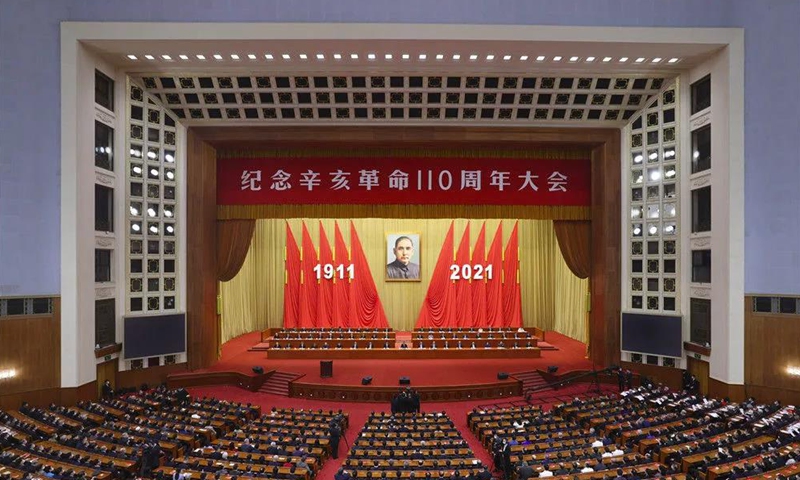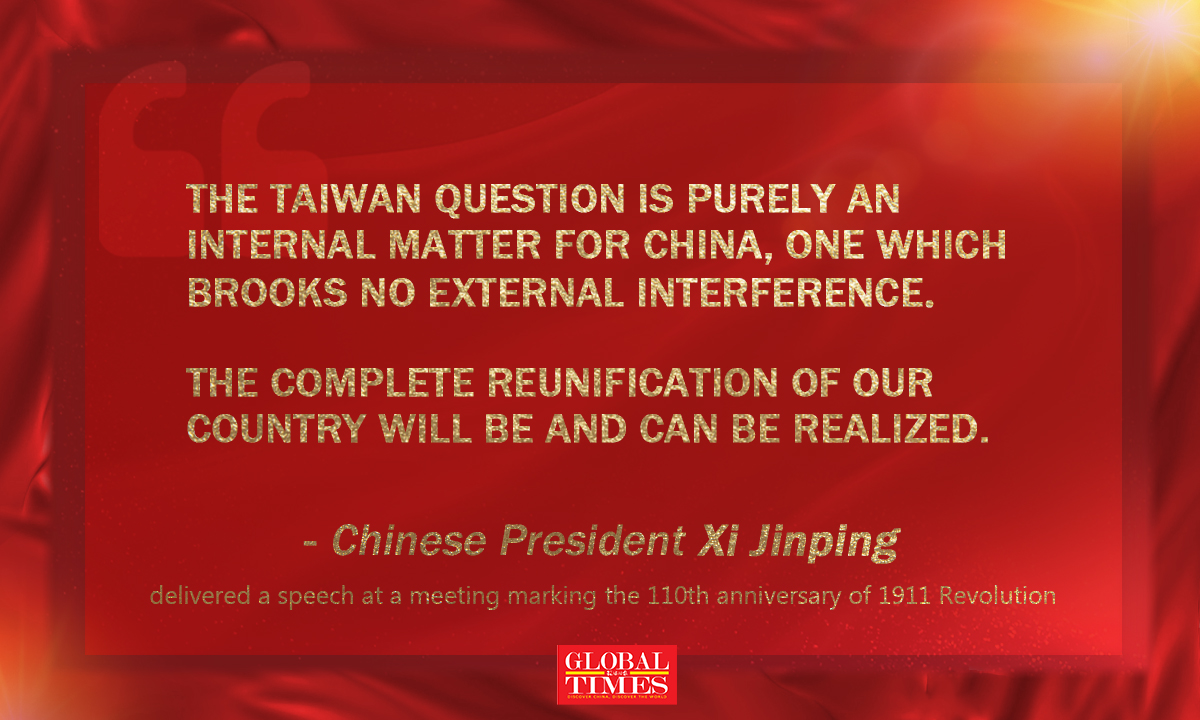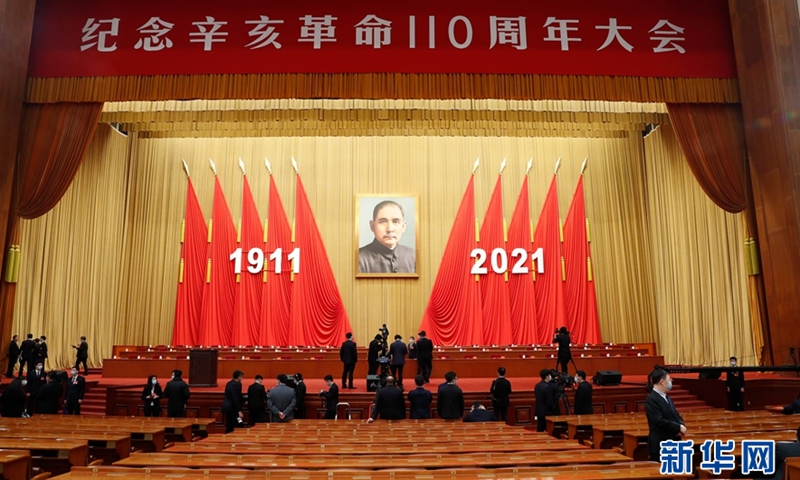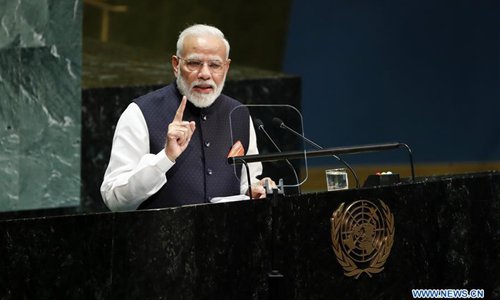https://youtu.be/hY9onHyAxm0
Taiwan: Spies, Lies and Cross-straits Ties | People and Power
Tsai Ing-wen
Taiwan's regional leader Tsai Ing-wen on Tuesday published an article, entitled "Taiwan and the Fight for Democracy", in Foreign Affairs Magazine, claiming that "If Taiwan were to fall, the consequences would be catastrophic for regional peace and the democratic alliance system." It seems that the Tsai authorities are really scared, anticipating that their secessionist attempt has gone to a virtual dead end. They, as an anti-China outpost of US' Indo-Pacific Strategy will sooner or later be wiped out by the Chinese mainland, but they have a severe lack of confidence that the US and its allies will fully defend the island. In this context, Tsai penned the article to underline the current peril, calling on the US and its allies to strengthen their commitment to the Taiwan island and to deter the Chinese mainland.
Tsai repeatedly used the word "democracy" in the article, like a cultist regarding what she called "democracy" as a talisman. However, everyone can see that the Democratic Progressive Party (DPP) has hijacked Taiwan's democracy and has turned it into an extreme ideology to confront the Chinese mainland. It is clear to all that Taiwan has bitten off more than it can chew. There was a period of peaceful cooperation between the Chinese mainland and Taiwan island during which both sides sought shared development. But it was ruined by the DPP, which is now quenching thirst with poison. Taiwan's practices of acting as a strategic outpost against China in exchange for US' protection is the craziest gamble in the history of international politics.
Now they are also in the fear of losing everything. In an interview with Australia's ABC News on Monday, Joseph Wu, leader of the external affairs of the Taiwan island, said the island is preparing for war with the Chinese mainland, drawing on Australia for help. And Tsai, in Foreign Affairs magazine warns Taiwan's "fall" will be catastrophic for the US and its allies. Their fate is bound to be a catastrophe when they attempt to separate Taiwan from the China. The further the DPP authorities go down the path in colluding with external forces, the closer they move to their tomb.
There is no force in the world whose will to "defend Taiwan" is stronger than China's will to fight against secession and achieve reunification. To be precise, they are completely incomparable. China dares to have a life-and-death fight against any force that hinders our reunification, but no force dares or is willing to fight to the death against the world's second largest economy, as well as a nuclear power, in order to prevent China's reunification.
Tsai authorities understand this point. When they never say uncle, they are quietly shivering, and they will increasingly turn to their masters for help.
US views China as an enemy based on a slanted world view
Will war inevitably break out between China and the United States? To some Americans it seems inescapable. This view has been promoted by the American elite over the years, and is still quite popular in the United States. Why?
International relations scholars in the United States and Europe have no doubt expounded and established their thoughts on international relations and foreign policy according to the thoughts of Machiavelli, who believed that there is no altruism or justice. In his famous political treatise, the prince becomes accustomed to doing evil, and is not troubled by being blamed for cruelty. Compassion is dangerous.
American politicians treat China as a rival to a large degree based on their slanted belief in the "Thucydides Trap", a rising power is bound to challenge an existing power, and the existing power is bound to respond to the threat, and war becomes inevitable. This phrase is based on an assertion by Thucydides, the famous Ancient Greek historian, that the war between Sparta and Athens was due to the fear instilled in the established dominant power of Sparta by the rising power of Athens.
Machiavelli famously asserted: "The end justifies the means." Because of this source of thought, western liberalism or western realism are only instrumental. Both have no intention to coexist and compromise with the existing world. Both have the strong exclusivity of religious fundamentalism, both seek the highest purity, or extreme, of theory and practice according to their own logic and ideas. The difference is that pessimistic Western realism insists its own interests and wants to eliminate imaginary opponents and conquer an "uncertain" world by force. Optimistic Western liberalism sees the non-Western world as an "opportunity". Its goal and means are to individualize, fragment and demonize the non-Western world with various "freedoms" of western standards, so that it has no intention or ability to respond to the flow of western capital and the spread of self-centered consciousness.
The biggest problem with America is that Americans don't understand what empathy is and how-to walk-in others' shoes. What they pursue is to impose their ideas and ideology on any other countries that have different ideologies or political systems. America promotes democracy in the world like a doctor prescribing Viagra to all his patients, whether young or old. It acts with a combination of missionary zeal and solipsism -- an inability even to conceive of another way of looking at the world.
Many Americans have a one-sided understanding of China. They need a new understanding of China and the Chinese spirit. The Chinese spirit is the spirit to build the Great Wall. The people who built the Great Wall were definitely not invading, but making the statement, "if you don't invade me, I will never invade you".
Equally, the spiritual pillar of the Chinese nation is represented by a diagram, known as the Taiji. The Taiji diagram is Yin with Yang, Yang with Yin, Yin and Yang grow together. The western way of thinking is a dichotomy of one cut and two halves, The future trend of the world's way of thinking should be one of Yin and Yang, not two. If western civilization is the white hemisphere of the Taiji chart, masculine culture, with strong extroversion, then Chinese culture is the black hemisphere, belonging to the feminine culture, with strong inclusiveness. Chinese culture has white in black. That is to say, Chinese culture can tolerate western civilization. Therefore, western civilization should also tolerate Chinese culture, rather than provoke a "clash of civilizations".
There is only one country today whose growth depends on 70 years of effort, no plundering, no colonization, that depends on the separation of migrant workers' families, on the export of resources of the whole country, on the export of the whole environment, and on how much it costs to change from foreign trade, bit by bit. Accumulated national strength is the reason it is what it is today.
Chinese culture is a heterogeneous culture based on harmony, it treats humanity as a continuity which is a master key to solving the cultural confusion.
China has not portrayed itself as the enemy of the West, but rather the enemy within the West has led to a hostile view of China. That enemy is the West's view of the world.
They misunderstand China in their imagination based on their incorrect recognition of the law of the jungle which refers to natural selection and survival of the fittest. The law of the jungle does not apply to human civilization, which is made up of intelligent creatures, unlike the wild, a competitive primeval forest. In the process of the development of human society, with the continuous improvement of the level of civilization, people do not remain in the state of animals in the jungle. Power is the truth in human society. Even if it exists temporarily, it will not last long. Human society will eventually destroy itself if it follows the law of the jungle.
Chinese culture celebrates the relational values of deference and interdependence. It respects the uniqueness of the particular. It promotes understanding and consensus among different civilizations through equal exchanges. It promotes the common values of mankind through mutual learning. Human beings should work together to build a community with a shared future for all, create a beautiful tapestry of human civilization, and share a harmonious and prosperous global village. The Chinese culture of harmony is not a part of an ideology - it is a moral vision, a way of being in the world. To regard it as a cultural resource is not romanticism, but arises from necessity. Although it has been ignored for a couple of hundreds of years, this culture of China deserves its place at the table. It has a lot to offer and is going to make a difference in the world.
The international community has to get past the ideology of individualism. We have to take responsibility for not only thinking of ourselves, but for what we mean for other actors who share the world in which we live. If your neighbor does better, you do better. It is that simple. The world is interdependent; it is is organic; we are all in play at the same time.
The author is Non-Resident Research Fellow, Global Engagement Academy, Shandong University (Weihai) China; Associate professor, School of Foreign languages , Nanjing University of Finance and Economics. Pu Jingxin@126.com
Related:
- National reunification by peaceful means best serves the interests of the Chinese nation as a whole, including compatriots in Taiwan. - The complete reunification of
A grand commemorative meeting marking the 110th anniversary of the 1911 Revolution is held on Saturday in Beijing. The historical mission of the revolution was to overthrow the monarchy, establish a republic and realize the great rejuvenation of the Chinese nation. And the reunification of the country is undoubtedly an indispensable part of the great
Copying US' China bashing tactic, India invites trouble
Related posts:
China's Revolution 1911/1911 辛亥革命110周年
Splashing $10m a year to split and subvert China, US govt-backed foundation unabashedly reveals funding scheme
Inside America's Meddling Machine destabilizing the world order
NED, the US-Funded Org Interfering in Elections Across the Globe
Pakatan’s dependency on dubious NED funding, Suaram
Suaram adviser questions Pakatan Harapan's funding from the National Endowment for Democracy
https://www.thestar.com.my/news/nation/2021/08/30/suaram-adviser-questions-pakatan-harapan039s-funding-from-the-national-endowment-for-democracy
The cost and funding of the Hong Kong violence in CIA innumerable US regime-change, a price on freedom
















